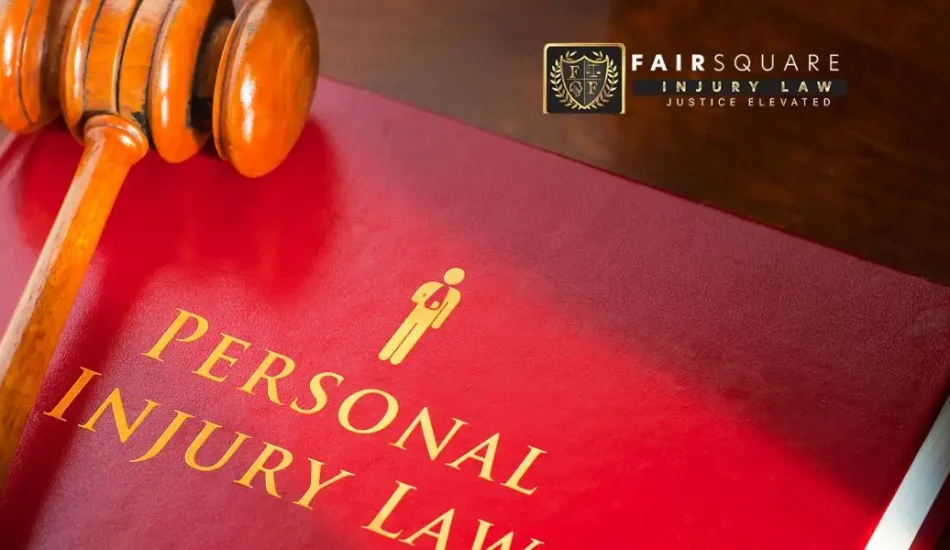Colorado law requires personal injury claimants to file their cases within a set time limit following their injury. Most legal cases have a statute of limitations set at two years, but this duration can change based on the specific injury or claim type. The deadline for filing personal injury claims can be extended by specific exceptions such as the discovery rule when the injury was not immediately recognizable.
Colorado Personal Injury Statute of Limitations [2025 Updated]

Colorado law provides injured victims with the right to pursue compensation if someone else’s negligence caused their injuries. You must take legal action before the statute of limitations runs out or you risk losing your right to compensation. If you do not file a personal injury claim in the designated period, you can lose your opportunity to obtain compensation. Knowing the Colorado personal injury statute of limitations helps victims submit their claims on time.
Colorado Statute of Limitations
A statute of limitations establishes the maximum time period within which legal action must be initiated. Legal deadlines ensure that claims are filed quickly, enabling evidence to remain intact and witness recollections to remain precise. Colorado’s personal injury cases operate under defined time limits that differ depending on the nature of the injury.
A personal injury claim must be filed within two years of the injury date according to Colorado statute of limitations rules. The court requires you to file your claim within two years starting from the date of the injury.
The statute of limitations covers most personal injury claims, which include slip-and-fall accidents, car accidents, traumatic brain injury (TBI), rideshare accident, spinal cord injury, truck accident, motorcycle accident, and unsafe property incidents. The two-year statute of limitations also applies to wrongful death claims when negligence from another party causes a loved one’s death.
Statute of Limitations Exceptions
The two-year deadline remains standard, but multiple exceptions exist that might extend this time limit. The discovery rule permits the statute of limitations to begin later when injuries remain hidden from immediate detection. This rule applies to incidents where injuries develop over time or only become apparent after the fact, such as medical malpractice or harmful substance exposure.
When an injury occurs that remains undiscovered initially, the statute of limitations begins to run from the moment the injury becomes known or should have been realized. Colorado also allows for particular exceptions in certain situations. For example, Colorado law permits an extension of the statute of limitations for cases involving injured individuals who are legally disabled until their disability ends. This rule also applies when defendants conceal injuries or their causes through fraudulent actions.
Statute of Limitations For Special Situations
Different personal injury claims may have different time limits that do not fall under the general two-year rule. This includes the following:
- Car accidents. In 2024, Colorado had 687 traffic fatalities, many of which involved drunk driving. The legal deadline to file a claim for injuries from a car accident is three years starting from the accident’s date. The three-year filing limit for claims applies to drivers and passengers as well as pedestrians and cyclists who experience accidents. The discovery rule can lengthen the filing period when injuries from a car accident become apparent after some time.
- Medical malpractice. According to a study from Johns Hopkins University, medical malpractice is the third-leading cause of death in the United States. Medical negligence victims usually have two years to bring a legal claim against responsible parties. Beyond the standard time limit, a statute of repose prevents claims from being filed more than three years after the injury or medical malpractice occurred. The statute of limitations may begin at a later date if the injury was not immediately identified.
- Intentional acts. The statute of limitations is limited to one year for injuries caused by intentional acts like assault or defamation.
- Product liability. A two-year statute of limitations applies to filing claims in product liability cases resulting from injuries caused by dangerous or defective products. The two-year limitation begins on the injury date but discovery rules could adjust this timeframe.
Consequences of Missing the Deadline
Missing the statute of limitations deadline in Colorado means you may lose your legal right to seek compensation for your injury. Your case may be dismissed by the court without examination, which eliminates your chance to get reimbursement for medical bills, missed work income, and pain and suffering. Many injuries demand sustained treatment and therapy, which can result in severe financial hardship.
The legal system strictly enforces time limits for valid claims, so if you fail to act quickly, you can lose your opportunity to seek justice. It is essential to seek legal counsel as soon as you sustain an injury to make sure you meet all necessary deadlines.
Filing a Claim in Colorado
The local court system in Colorado functions effectively and personal injury claims usually proceed through district courts. The state contains 22 judicial districts and each of them operates under unique claim filing procedures. Your legal case will be filed at the Denver District Court if you reside in Denver County, yet cases from El Paso County (Colorado Springs) must be submitted to the El Paso County District Court.
FAQs
Contact Fair Squared Injury Law
Suffering a personal injury due to another person’s actions can have a drastic effect on your life. Fortunately, there are legal options available to you in order to receive the justice and compensation you deserve. Fair Squared Injury Law can help you through the legal process so you meet the required deadlines. Contact us today for a consultation.
See Related Posts:

